
Why Can Babies Have Yogurt But Not Milk? You might be surprised to find out that babies can start eating yogurt before drinking cow's milk, but there is an excellent reason. There is a big controversy regarding dairy products and milk, but once you know the facts, you will decide exactly what is best for your child.
You can introduce yogurt and other dairy products to your baby's diet once they reach six months old, but cow's milk will have to wait until they are one year old. You will find this opinion sustained by many pediatricians, while "traditional wisdom" might tell you otherwise.
Jump to:
Why is yogurt good for babies?
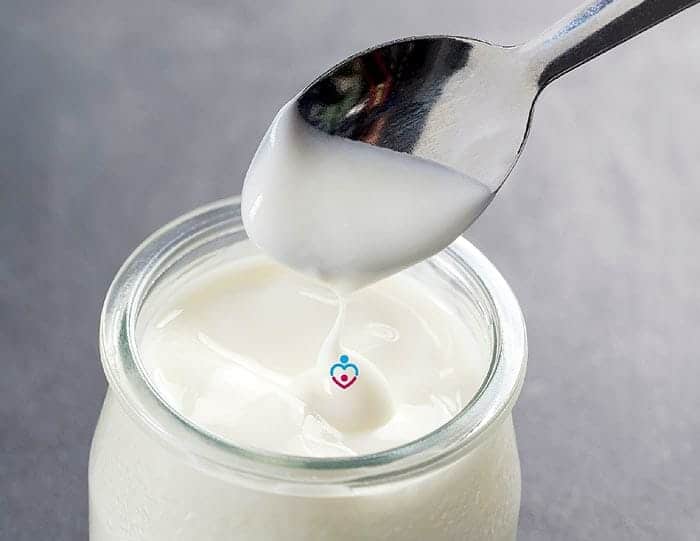
Yogurt has plenty of benefits for babies, as long as you introduce it correctly into their diet. You will be glad to learn that yogurt can be among the first foods you give your baby once you start introducing solids.
- Unlike cow's milk that contains lactose, yogurt contains lactic acid instead of lactose, making it a lot easier to digest for infants. Since babies cannot digest lactose easily before they get to one year old, yogurt and other dairy products are a better choice for them when you start introducing other foods than breastmilk.
- Yogurt is made by a process called fermentation. Therefore, infants will digest it a lot easier than they would digest cow's milk. The protein in yogurt is also easier to assimilate by the developing digestive system of an infant.
- By adding yogurt to your baby's daily diet, you will support their bone's development as well as the development of their immune system. At the same time, the protein and fat in yogurt will support their overall growth.
- The American Academy of Pediatrics (AAP) recommends that babies receive half of their daily calories from fat. This recommendation makes yogurt an even better choice when you start introducing solid food to your child's diet.
- Another impressive quality of yogurt is that it comes in a neutral flavor. So you can mix it with plenty of other ingredients such as fruit and cereal. But always start by introducing it to your baby's meals plain so you can see if they present any side effects.
![]()
When to introduce yogurt to your baby's diet?

Some pediatricians recommend even waiting until your baby is 8 months old to introduce yogurt to their diet. But the general opinion on this matter concluded that six months is a good age for most babies to try out a nutritious yogurt.
Keep in mind that if your baby is allergic to cow's milk, you should skip all dairy products, including yogurt. In this case, you will have to re-evaluate the option of introducing dairy products to their diet once they turn one year old.
![]()
Why can babies have yogurt but not milk until 1-year?
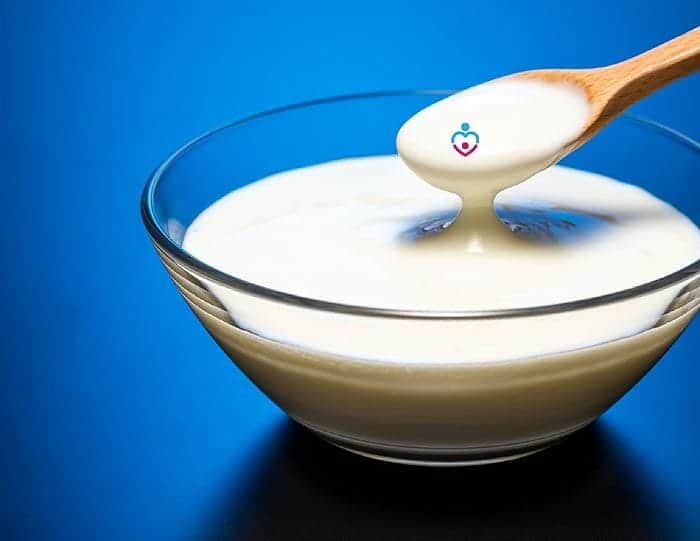
Cow's milk benefits a child's diet, but they have to be developed enough to receive them. There are several reasons you shouldn't give cow's milk to a baby younger than one year of age, and we will address each one in particular.
A) Cow's milk contains too much protein
One of the most significant issues with cow's milk is its high concentration of animal protein, making it hard for babies to digest. This protein is called Castine and, in large quantities, can cause indigestion and blood loss, and kidney issues in babies younger than one year old.
Suggested Reading:
![]()
B) It can lead to lactose intolerance
Cow's milk is also high in lactose, a type of sugar that needs to be digested by a particular enzyme called lactase.
- If your baby is not old enough to develop this enzyme in their digestive system properly, they will not be able to digest lactose from cow's milk properly. Infants have a certain level of lactase even before they turn one year old, but this is only enough to digest breastmilk, not cow's milk.
- Therefore, the lactose from cow's milk will be stuck in the baby's intestine. The present bacteria will try to convert it into lactic acid. Unfortunately, this process will also generate increased amounts of hydrogen gas. Ultimately, it will lead to an intolerance to lactose.
- Lactose intolerance can have symptoms such as bloating, diarrhea, nappy rashes, and fussiness. These symptoms can range from mild to severe.
Suggested Reading:
![]()
C) Cow's milk contains more sodium and potassium
Another reason why you should avoid giving your baby cow's milk before one year old is the high concentration of sodium and potassium it has. This high amount of potassium and sodium can cause allergic reactions in babies younger than one year. These reactions might cause rashes and digestive problems.
However, such symptoms will appear if you give your baby cow's milk as a primary daily drink.
Suggested Reading:
![]()
D) Can cause iron deficiency
It might be surprising that caw's milk can lead to iron deficiency[1], but this is a real risk. This condition might appear if you replace your baby's formula or breastmilk with cow's milk. However, feeding them cow's milk exclusively before they turn one year old will not offer them the iron they need, and they might develop anemia.
Suggested Reading:
![]()
E) Cow's milk lacks certain, essential nutrients
If you consider adding cow’s milk to your baby’s meals as their main drink, you should consider its nutritional value. This type of milk lacks essential nutrients that a baby needs, making it less than ideal for the leading food in the first year of life. For example, cow’s milk is low in vitamin C, vitamin E, fatty acids, and other minerals and vitamins that are so important for the development of your baby.
Suggested Reading:
![]()
F) Cow's milk can cause allergies
Besides lactose intolerance[2] which tends to be the most common side effect of introducing cow's milk to babies before they are ready for it, this milk can also cause other allergies. Allergic reactions happen when your baby's body identifies the cow's milk protein as a foreign body and starts fighting it.
Common symptoms of such an allergy include diarrhea, vomiting, rashes, and hives. However, you might notice these symptoms in only a few hours or the next day after your baby had cow's milk. The good news is that most toddlers overcome this allergy by the time they are four years old.
Suggested Reading:
![]()
Cow's milk is only dangerous for your baby if they are not ready for this food yet. As long as you introduce cow's milk in your baby's diet after turning one year old, you shouldn't have to worry about such side effects. However, it is essential to talk to your doctor if you gave your baby cow's milk and noticed any common side effects in allergic reactions.
![]()



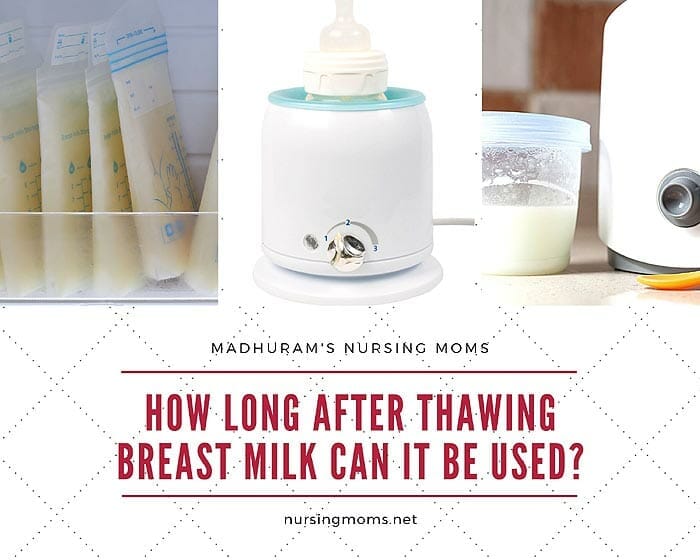
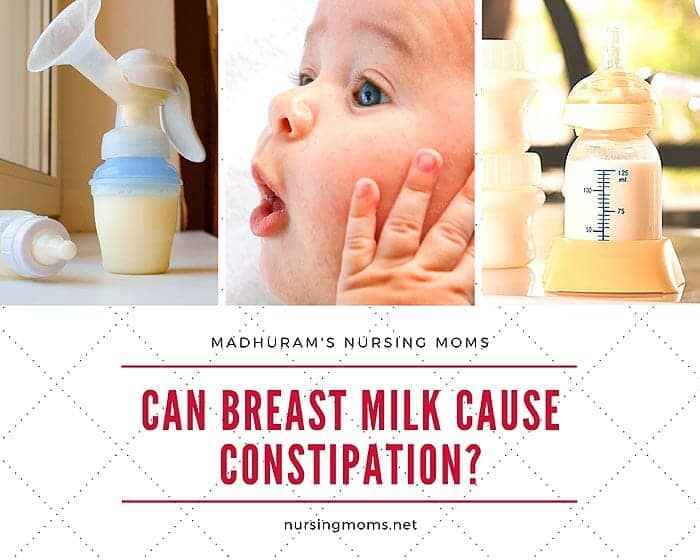

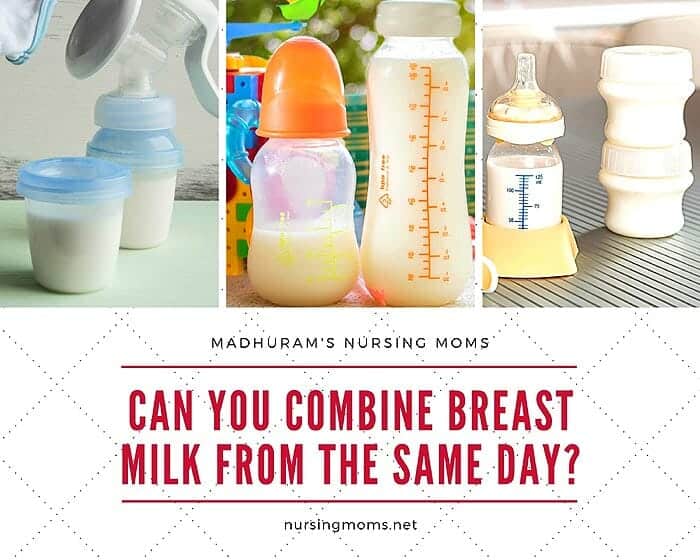

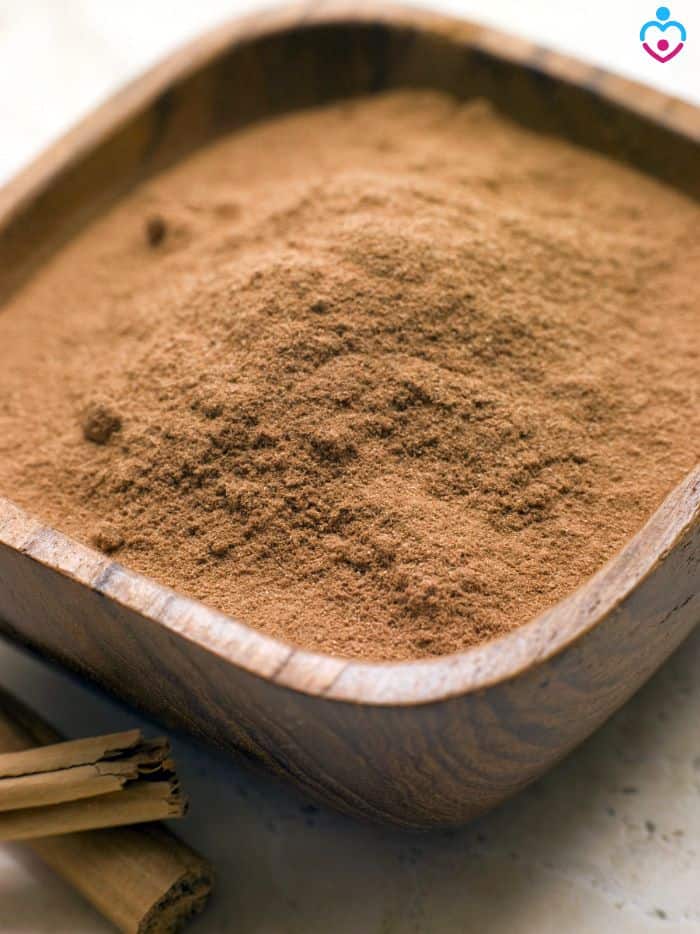
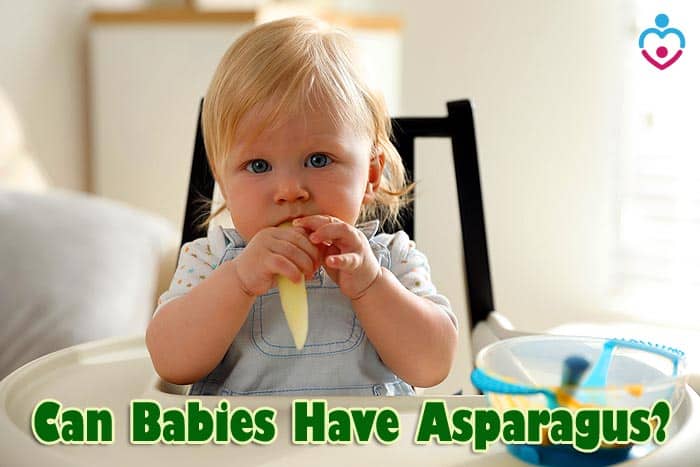

Leave a Reply